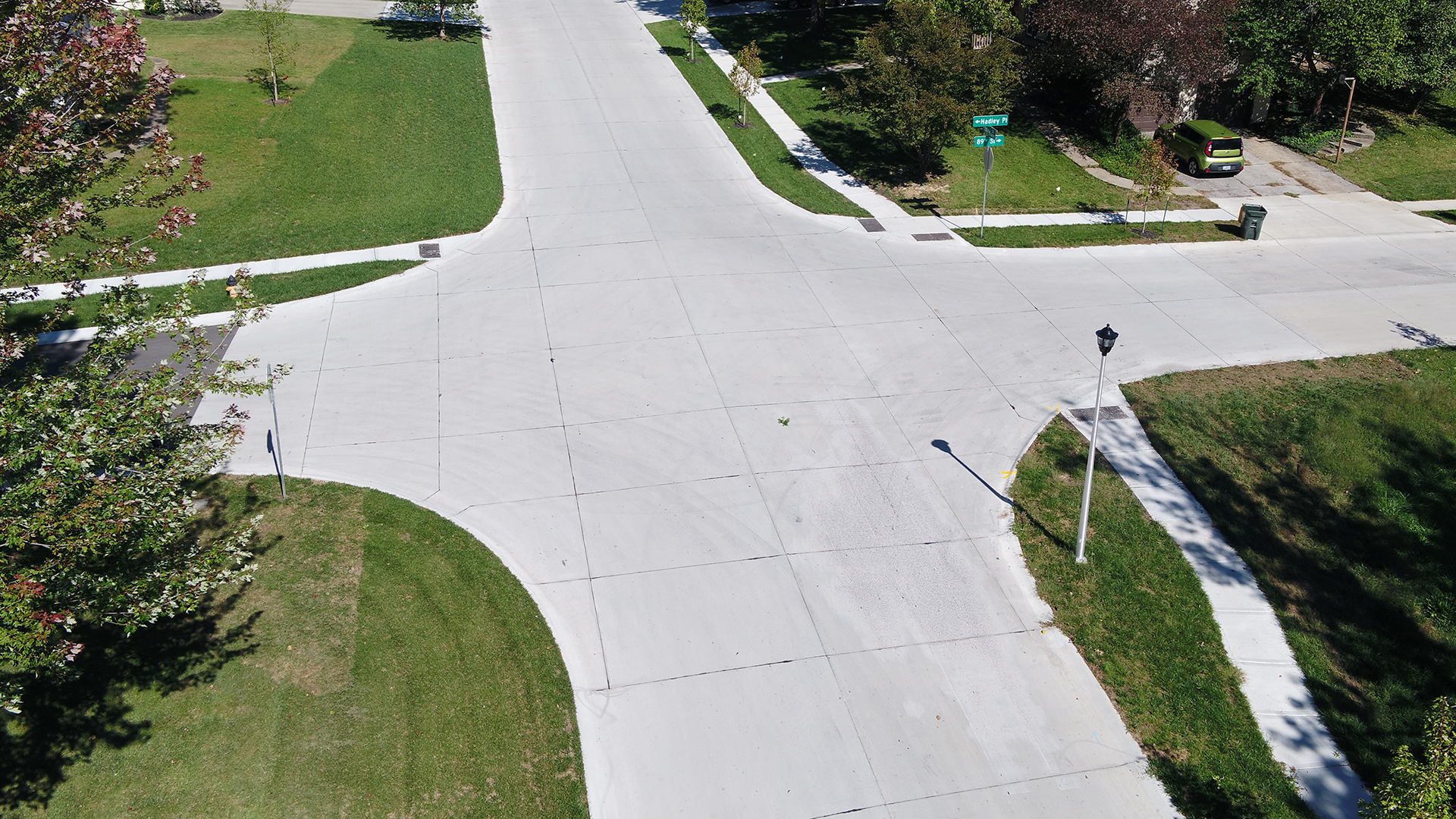
The City of Overland Park will require new residential and collector streets to be built with concrete pavement starting next month.
On September 11, the City Council approved a recommendation to update the City’s design and construction standards. Changes to street standards include:
- Requiring single-family and multifamily residential streets, collector streets, and “super collector” streets be constructed with concrete pavement.
- Narrowing the allowable width of some new local residential streets from 28 feet to 26 feet wide.
The new standards will be published on November 1.
Reducing reliance on chip seal
The initiative to build more concrete streets stems from the City of Overland Park’s pledge to reduce its reliance on chip seal.
Chip seal is an asphalt pavement maintenance method that extends the life of pavement by as many as seven years, but can be a rough surface and cause chip rock to gather near work sites.
“Fewer asphalt streets means the City will perform less chip seal pavement maintenance,” said Public Works Director Lorraine Basalo. “This is a small step, but a step in the right direction and it can have a large impact in the long run.”
Over the course of about 20 years, the City expects the change will mean about 370 lane miles of street that would eventually need chip seal maintenance, will instead be built with concrete.
Benefits of concrete
Over the 50-year lifespan of expected streets, the overall cost of both pavement asphalt and concrete streets is roughly equivalent.
Asphalt requires maintenance every 5-7 years, including crack seal, chip seal, and “mill and overlay” to keep streets in good condition.
Concrete requires maintenance only every 15 years over the same time frame, and does not require chip seal as a maintenance method.
Concrete streets have additional environmental benefits: Less maintenance means fewer materials used and fossil fuels consumed. Concrete pavement temperatures are also slightly cooler than asphalt.
Decision rooted in community engagement
In 2022, the Infrastructure Advisory Group recommended, along with other strategies to improve the City’s streets, that Overland Park reduce its reliance on chip seal as a maintenance method.
The City has used concrete to re-construct existing neighborhood streets for several years, because of the benefits listed above.
In January, the City Council Public Works Committee suggested staff consider the possibility of requiring new neighborhood streets to be built with concrete.
City staff worked with community partners, including the Kansas City Home Builders Association, asphalt pavement industry, concrete pavement industry, and the engineering community, along with business owners and residents, to take input from the public and determine the feasibility of concrete streets in new neighborhoods.
